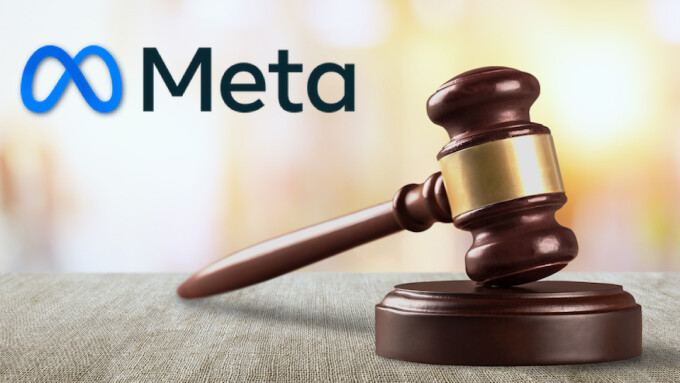SAN FRANCISCO — A California federal judge, overseeing a lawsuit claiming that Meta conspired with OnlyFans to blacklist rival premium fan platforms’ talent, said during a hearing Wednesday that the tech giant’s lack of archiving of its “Dangerous Organizations and Individuals” (DOI) list sounded “nefarious.”
As XBIZ reported, Adult Performance Artists Guild board officers Alana Evans, Kelly Pierce and Ruby filed the civil lawsuit in February 2022 against OnlyFans and its owner, as well as against Meta, the parent company of Instagram and Facebook. The suit replicated claims from an earlier lawsuit filed on behalf of FanCentro in November 2021, alleging a conspiracy to engage in “tortious interference with contract and intentional interference with prospective business.”
In March, however, the plaintiffs sought to drop the lawsuit, telling the court that “based on the information Meta defendants provided, the information essential to plaintiffs’ class allegations is not available,” making further discovery efforts “futile.” This was after Meta informed them that the company “found no evidence that any competitor platform was currently on the list, or had been nominated for inclusion,” according to the plaintiffs’ motion.
The plaintiffs are now seeking to drop the suit in such a way as to leave open the possibility of future antitrust claims. Disputing this, Meta has asked the judge to instead issue a summary judgment in the company’s favor.
During this week’s hearing, U.S. District Judge William Alsup questioned the plaintiffs’ counsel’s strategy of not deposing the witnesses offered by Meta, but reserved his strongest language to lambast the tech giant for its peculiar record-keeping methods regarding updates and changes to its controversial DOI blacklist.
The rebuke was in response to Meta attorney K. Winn Allen’s explanation that Meta “has a collaborative review process before new users are added to Meta’s DOI list that involves Meta’s content team, policy team, communications team and legal departments, among others,” legal news site Law 360 reported.
Meta only produced selected old versions of the DOI lists that were included in the email communications disclosed during discovery.
The judge added that it bothers him that a large company like Meta would not have a protocol to regularly store and archive the different versions of its DOI list.
“That sounds nefarious to me, that you are destroying evidence before it is needed,” Alsup told Meta’s attorneys when they implied that the list was a “living” document, always mutating.
“The list is not living,” the judge pointed out. “It dies each day.”
Alsup appeared especially baffled by the practice of not keeping records on the list because of his background as a corporate attorney familiar with compliance issues. When reviewing the statements by Meta’s attorneys, he said, he thought, “My god, why don’t they keep that?”
“If I was a lawyer, I would advise them to keep the document,” he added, noting that this would enable the company to share updates of the DOI list with law enforcement.
“So you see, I’m suspicious,” Alsup told Allen. “Your explanation raises more questions than it answers.”
The plaintiffs celebrated the judge’s remarks as a victory.
“I am happy that the judge is having just as hard of a time as we are believing the data doesn’t exist,” Evans told XBIZ. “I hope to see this continue to move forward.”








